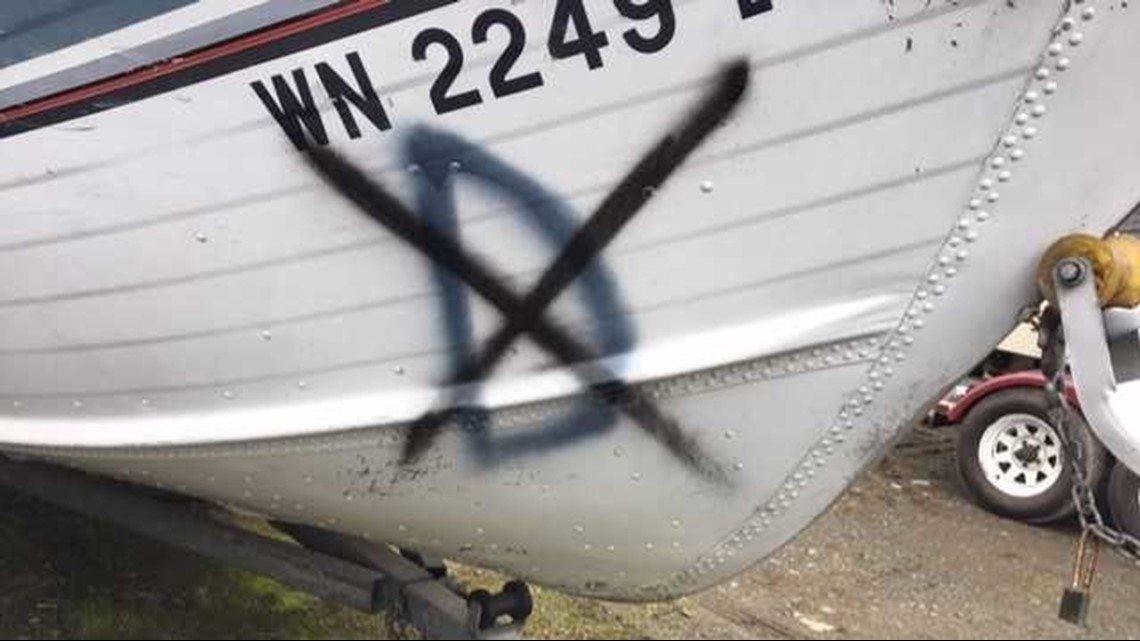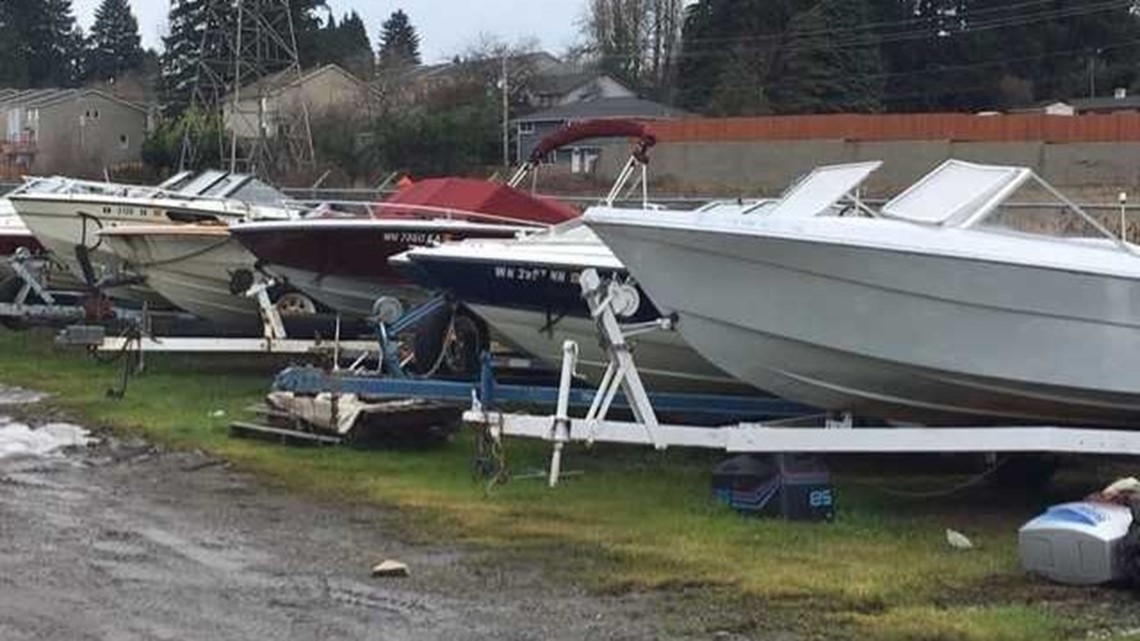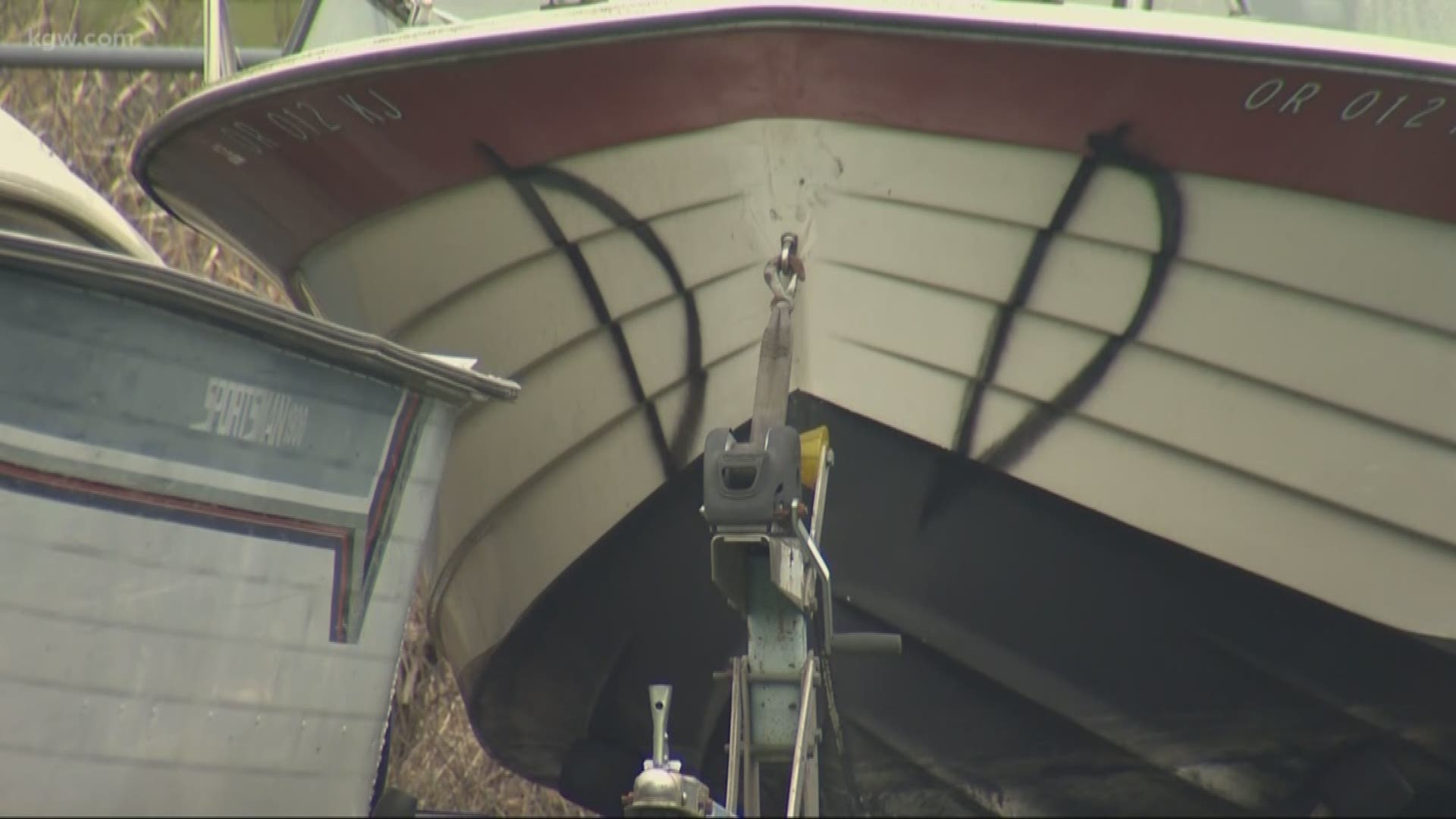PORTLAND, Ore. — Portland's homeless crisis has spilled out onto our rivers, with some people choosing to live in the shelter of an old boat, than a tent on the street. But many transients are getting ahold of broken-down boats and living on them until they sink.
KGW dug deeper into the issue, tracing how they're getting those boats.
It's a lot different than when you want to get rid of an old car. Cars parts can be recycled or metal sold for scrap. But most boats are fiberglass, and that's just garbage. Taking it to the dump could costs thousands. Private parties and moorages are deciding not to pay that, and just leaving them on the streets for the homeless.
"So pretty much everything along the back, is going," said Mark Robertson, owner of Maritime Mobile Services in Vancouver. He was pointing to a row of about 17 boats that will be going to the scrapyard. The "D" spray painted on them, stands for "destroy".


"There are no classics unless they're wood boats. There's no money in them, there's nothing," Robertson told KGW. "That's the problem you're having. That's why you're seeing all these old boats laying around everywhere."
Maritime Mobile Services does boat repairs, and buys them for their engine parts and the metal that can be re-sold. But Roberson says the fiberglass hull is total garbage, and he has to pay between $250-$3,500 to take it to the dump and be shredded.


Most people don't want to pay to throw something away, so they don't.
"I've seen a lot of motor homes on the street, lot of boats on the street, just being left. There are a couple streets up in Seattle they call 'boat row,'" Robertson said.
It's where the homeless come in. Picking up these boats for free, or on Craigslist for $100-$200, patching holes and trying to live aboard them illegally on our rivers. Below Marine Drive, across from Hayden Island on the Columbia River, there are about five of these kinds of boats half sunk, bobbing in the water. Many others are tied off to one another. Another pile of boats are jumbled up on shore.
They leak toxic chemicals, battery acid, oil. The Multnomah County Sheriff's Office believes at least five have sunk completely to the bottom next to Hayden Island.
To make matters worse, Robertson says the scrapyard he goes to just upped prices, and started requiring ownership titles for each boat they destroy. But he estimates only half of all the old boats still have a title, so they're turned away from the dump, only to end up on the street, or in the river.
"There's just no way of getting around it so people just don't deal with it. Like I said, you can scratch the numbers off the back of the boat and leave it anywhere. Nobody will know whose boat it is, ever."
So who cleans this all up? The Multnomah County Sheriff's Office says its dive team can take care of very small boats in shallow water for between $300-$800.
It doesn't happen very often because their budget doesn't allow for it. But larger cases are decided on by the Oregon State Marine Board, who bids out jobs to private contractors to yank these sunken boats up.
The sheriff's office says it can start around $8,000. There's a toxic 40-foot transient boat that sunk in 2016 at Chinook Landing near Troutdale, and the bid to get it is $60,000. The Marine Board's budget is $150,000 for every two-year term. Nothing has been decided on that boat yet.

